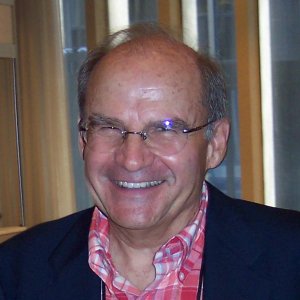"Many
of the most important perspectives on the economic aspects of globalization
are associated with Marxian theory. Leslie Sklair
describes two systems of globalization. The capitalist system is now dominant
but it is shadowed by an antiglobalization movement
fed by the problems of class polarization and ecological instability.
Sklair accords priority to transnational corporations and
a class of transnational capitalists which share global interests
and perspectives that transcend national origins. Within capitalist globalization
the culture-ideology of consumption is particularly important because it creates
a global mood that is beneficial to transnational corporations. Sklair
hopes that national protectionism and new social movements will succeed in countering
the negative consequences of capitalist globalization in the coming century.
Integrating Marxism with postmodernism, Michael Hardt and Antonio Negri offer a
postmodern interpretation of the global economy centered on the concept of empire.
They suggest the globalization is governed by an empire that cannot be traced
to any single nation or place and is omnipresent. Lacking territorial
and temporal boundaries, empire seeks to control thought, action, interaction,
groups, and even biopower. It seeks to be a
juridical power based on such things as norms, ethics and truth which compels it to incorporate new places, to affirm
differences, and to stratify and manage these differences. Hardt
and Negri suggest that the multitude
which sustains empire in various ways may be a force that is capable
of overthrowing empire and creating a counter-empire." (1)
Political
Theory (James
Rosenau)
- Distant
proximities (distanciation)
- Fragmegration
(fragmenting and integrating at the same time)
- The
Development of New Micro-Electronic Technologies (cell phones, email,
etc--boundaries and states--less important versus "digital divide")
- The
Skill Revolution (analytical skills versus illiteracy)
- The
Organization Explosion (NGO: integrate those involved, fragment with outsiders)
- The
Bifurcation of Global Structures (state centrism versus subnational, transnational,
and NGOs)
- The
Mobility Upheaval (people on the move (tourism integrative--terrorism
fragmenting), political attempts to control and regulate waning.
- Weakening
of Territoriality (inability of states to control and regulate borders
(border wall) yet, solidarity of regional/tribal allegiances (Bosnians
in STL)
-
Authority Crises (decline in authority of the state, "subgroupism,"
politics of identity.
- The
Globalization of National Economies (transnational economic flow)
"James
Rosenau's ideas about distant proximities and fragmegration are illustrative of the thinking of political
scientists on the subject of globalization. With distant proximities
Rosenau seeks to capture the paradoxical sense that
what seems remote is also close at hand in a global world. Fragmegration holds another uneasy opposition:
the idea that the world is both fragmenting and integrating at the same time.
Rosenau sees fragmegration
arising from a number of sources including new technology, a new emphasis on
analytical skills, an explosion of voluntary organizations with global reach,
the vigorous activities of subnational and transnational
organizations, intensified mobility via travel and migration, the weakening
of nation-states, the transfer of loyalties away from nation-states, and the
globalization of national economies. These changes have created new challenges
for states seeking to find new ways to govern in a fragmegrating world." (1)
Contemporary
Application: Al-Jazeera
and Globalization (2)
Internet
Exercises
Exercise 1
(1)
Go
to http://www.globalissues.org/TradeRelated/Facts.asp
and read the global poverty fact sheet. Then, answer the following questions:
- What percentage of people worldwide live on less than two dollars
a day?
- How much do developing nations spend on debt repayment?
Where does that money come from?
- What is the trend of the gap between the richest and the poorest
countries?
- What are the consequences of poverty for children?
- Characterize the progress being made on issues of life expectancy,
infant mortality and literacy.
quiz
Weblinks
- Gapminder:
http://www.gapminder.org (global change
and inequality)
- Globalization:
Threat or Opportunity?: http://www.imf.org/external/np/exr/ib/2000/041200.htm
- The
International Forum on Globalization: http://www.ifg.org/
- The
Globalization Website: http://www.sociology.emory.edu/globalization/
- CIA
World Fact Book: https://www.cia.gov/library/publications/the-world-factbook/
- The
Globalization Guide: http://www.globalization101.org/
- Globalization.com:
http://www.globalization.com/
- Center
for Global Research: http://www.globalresearch.ca/
- The
Global Policy Forum: https://www.globalpolicy.org/
- Globalization:http://www.worldbank.org/en/topic/trade/overview
- The
Globalist: http://www.theglobalist.com/
- Pew
Global Attitudes Project
Works Cited
1.
Much of this page comes from the "Instructor's Manual" to accompany Contemporary
Sociological Theory and Its Classical Roots: The Basics, Second Edition,
George Ritzer, Mcgraw-Hill, 2007. The Instructor's Manual was prepared by James
Murphy, University of Maryland, College Park and Todd Stillman, Fayetteville
State University. These excerpts are from chapter 10.
2. Ritzer, George. 2007/2010/2013. Contemporary Sociological
Theory and Its Classical Roots: The Basics. 2nd/3rd/4th editions. St. Louis: McGraw-Hill

URL: http://www.umsl.edu/~keelr/3210/3210_lectures/globalization.html
Owner: Robert O. Keel: rok@umsl.edu
Last Updated:
Friday, August 14, 2015 9:48 AM
